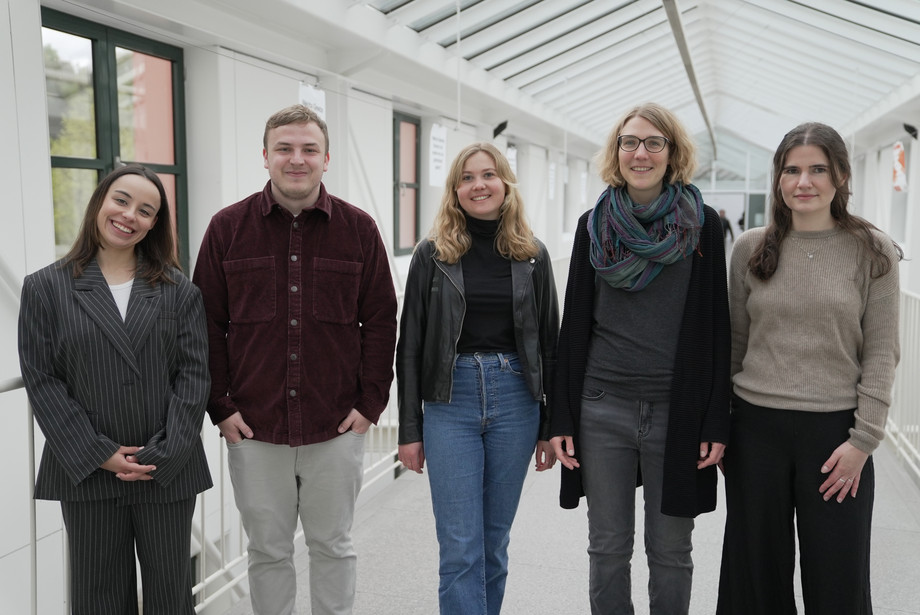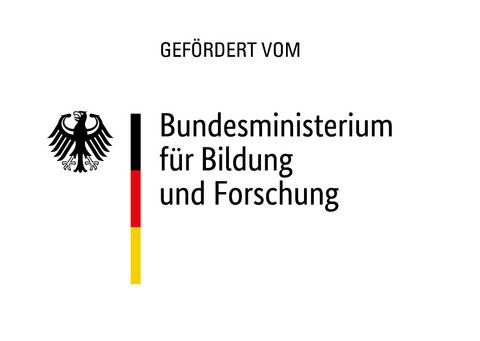Details
BMBF project PASSAUtonomy: Rediscovering freedom according to Immanuel Kant

The Passau project PASSAUtonomy is one of the winners of the Science Year 2024 university challenge which has "Freedom" as its theme. It revisits the old idea posited by the philosopher Immanuel Kant – we are free when we are able to give ourselves our own laws. For the project, the team is organising school workshops, discussion rounds in the beer garden, and an interactive exhibition at the University of Passau.
Out of just under 160 submissions to the Science Year 2024 – Freedom challenge, the jury selected the twelve best project ideas. Among them the Passau project PASSAUtonomy. Johanna Sinna, Marie Hirsch and their team, as well as research and student assistants at the Professorship of Applied Ethics held by Professor Karoline Reinhardt, took the idea of freedom posited by the philosopher Immanuel Kant – who is celebrating his 300th birthday this year – as the point of departure for their concept. "With regard to the topic of freedom, Kant's philosophy includes much musing on questions that are of individual and social relevance today: How does my freedom relate to others and the respect I have for them? How can the freedom of citizen inform the legislative process?" they explain. "We find that Kant's philosophy, especially in our day and age, should not only be discussed in philosophy seminars. Hence, we are particularly pleased that we are now able to implement the project."
Professor Reinhardt shares this sentiment: "Philosophy belongs in the marketplace – or right in the beer garden – and not in the ivory tower. In philosophy, the topics we're interested in are questions everyone ultimately asks themselves. This project doesn't merely demonstrate that but also puts it into practice: It's an invitation to put our heads together, think further, and gain fresh insights while talking to one another.“
PASSAUtonomy has set out to explore philosophical and social questions of freedom in several formats, including a workshop for secondary school children and an open "Philosophising in the beer garden" session for anyone interested in Passau. "To ensure a vibrant discussion within the University, there will be an exhibition organised together with students and a podium discussion," explains the project team, which includes Johanna Sinn and Marie Hirsch as well as Paulina Dannhäuser, Fabian Willemsen, Lena Scholz, Julia Berner, and Marian Micke.
The jury selected a total of twelve ideas submitted by young researchers hailing not only from Passau but also from Chemnitz, Detmold, Freiburg, Halle, Jena, München, Nordhausen, Nürnberg, Oldenburg, Regensburg, and Tübingen. These award-winning communication ideas testify to the rich thematic diversity in the Science Year 2024. The teams have decided to employ different communication formats, ranging from web series and card games to interactive exhibition. Each winning team receives 10,000 euros in prize money which they can then use to implement their ideas by the end of the year. As well as implementing their ideas, they are attending Wissenschaft im Dialog training courses and events where they get a chance to network amongst themselves. A kick-off workshop on science communication and public relations work is scheduled for mid-March.
The University competition
The university competition is a project of Wissenschaft im Dialog (WiD) and has been held annually since 2013 as part of the respective Science Year for students, doctoral candidates, postdocs and young researchers. The competition is supported by the German Rectors' Conference and the Bundesverband Hochschulkommunikation and funded by the Federal Ministry of Education and Research.
More information:
Image from left: Marie Hirsch, Fabian Willemsen, Lena Scholz, Johanna Sinn and Paulina Dannhäuser in the Durchlauferhitzer, where the exhibition will take place.
| Principal Investigator(s) at the University | Johanna Sinn (Professur für Angewandte Ethik) Marie Hirsch (Professur für Angewandte Ethik) |
|---|---|
| Project period | 01.03.2024 - 31.12.2024 |
| Source of funding |  BMBF - Bundesministerium für Bildung und Forschung |
| Themenfelder | Didaktik der Philosophie/Ethik |

